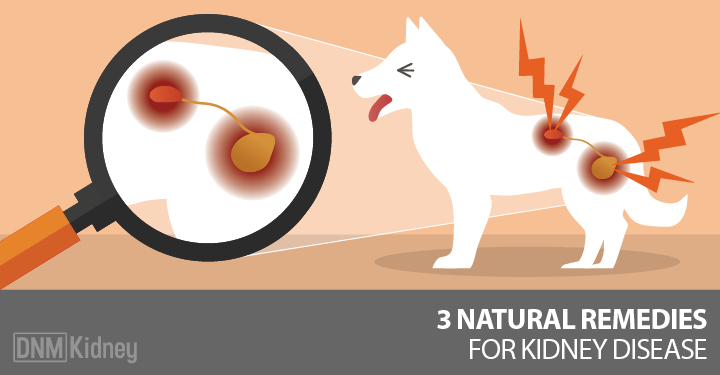Good Tips To Selecting Petz Park
Wiki Article
Probiotics Aids With Skin Allergies.
Probiotics can play a significant role in reducing and preventing allergies of the skin in cats and dogs. These beneficial bacteria maintain a healthy microbiome in the gut. This is beneficial for the skin and immune health. Probiotics can be beneficial to pets suffering from allergies:
Immune System Regulation
Balanced Immune response:
Function: Probiotics regulate the immune system by promoting the growth of beneficial bacteria as well as blocking harmful bacteria from the intestine.
Benefits An immune system that is healthy helps reduce hypersensitivity reactions, which can cause skin allergies. This can help to reduce the severity and frequency allergic reactions in animals.
Inflammation Reduction
Anti-inflammatory Effects:
Function: Some strains of probiotics create anti-inflammatory substances and regulate the inflammation response of the body.
Benefits - By reducing the systemic swelling, probiotics are able to reduce itching, inflammation, and other signs of allergic reactions.
Gut-Skin Axis
Gut Health Improvement:
The gut-skin link is a term used to describe the relationship between skin health and gut health. Probiotics boost the function of the gut barrier that is crucial for digestion health.
Benefits: Healthy guts can stop the leakage of toxins into bloodstreams which could trigger skin reactions. Additionally, it can reduce the signs of skin allergies.
Strengthening Skin Barrier
Improved Skin Barrier:
Function Ceramides are a type of lipid that is affected by probiotics. These lipids are crucial to maintain a healthy barrier the skin.
Benefits: A strong skin barrier guards against environmental allergens, and helps reduce allergic reactions and skin infections.
Allergy Symptom Management
Treat Symptoms
Function: Probiotics help to reduce symptoms by controlling histamines, and other chemicals that are involved in allergic reactions.
Pets benefit from this treatment may alleviate itching and other signs of skin allergies.
More Microbial Diversity
More Diverse Microbial Diversity:
Function: They boost the diversity of the gut microbiome. This is essential for an immune response that is in balance.
Benefits A microbial community that is diverse improves general health as well as skin health, by preventing the increase in bacteria that could trigger allergies.
Specific Probiotic Strains
Lactobacillus (common probiotic strain) and Bifidobacterium (common probiotic strain): These common probiotics are effective in treating skin allergies among pets.
Lactobacillus Rhamnosus GG: It is renowned for its role in improving the health of your gut and decreasing the symptoms of allergies.
Bifidobacterium animals: Helps reduce inflammation and improves the immune system.
Use and considerations
Dosage dose, administration and dosage The proper dosage is determined by your pet's weight, height and individual health needs. The label of the product must be followed, or the suggestions of your vet.
Formulations Probiotics are offered in chews, powders and capsules. To ensure safety and effectiveness, it's essential to select an animal-specific, high-quality product.
Monitoring and Side effects While probiotics are safe in general, it's essential to watch your pet for any adverse reactions, such as stomach upset. It's best to begin with a small dose and gradually increase the dosage. This can help to minimize the effects of side effects.
Also, you can read our conclusion.
Probiotics can assist treat skin allergies in cats and dogs by improving digestion, controlling the immune system, and decreasing inflammation. Regular use of probiotics could alleviate allergic symptoms in pets, promote healthier skin and enhance the quality of their lives. See the top rated kidney failure in cats examples for website info including pet joint supplements, premium quality pet supplements, pet supplements for pets with fear of medication, pet supplements for pets with skin allergies, pet supplements for pets with fear of confinement, natural pet vitamins, pet omega-6 supplements, natural pet food and more.

How Can Quercetin Help With Skin Allergies In Dogs And Cats?
Quercetin is a natural ingredient found in a variety of vegetables and fruits. Quercetin has a variety of beneficial effects for skin allergies. That's how quercetin functions to treat skin allergies.
Anti-inflammatory Properties
Reduce inflammation
Function: Quercetin contains strong anti-inflammatory effects that prevent the production of and release of pro-inflammatory Cytokines.
Benefits - By reducing inflammation quercetin reduces redness, swelling and discomfort that are associated with skin allergy, leading to an improved skin condition.
Antihistamine Effects
Natural Antihistamine:
Function: Quercetin inhibits the release of histamines by mast cells. Histamines is a chemical that can cause itching and other allergic symptoms.
Benefits as an natural antihistamine, quercetin can help lessen itching and allergic reactions. It can provide relief for pets with skin allergies.
Antioxidant Activity
Oxidative Stress Reduction:
Function: Quercetin is a potent antioxidant that helps neutralize free radicals and reduce the effects of oxidative stress.
Benefits by reducing the damage caused by oxidative stress to the skin, it is possible to lessen the damage caused by skin cells and promote healing.
Immune System Modulation
Balanced Immune Response
Function: Quercetin is a modulator of the immune system, that ensures a balanced reaction against allergens.
Benefits A well-balanced immune system can reduce allergic reactions.
The improvement of the skin barrier function
Strengthening Skin Barrier:
The function: Quercetin is essential in maintaining healthy skin barriers by aiding in the production of ceramides.
Benefits of a more robust skin barrier: It can help reduce allergic reactions by protecting against pathogens and environmental allergens.
Allergy Symptom Management
Pain Relief:
The function: Quercetin helps manage symptoms by inhibiting enzymes like lipoxygenase, which are involved in the inflammatory process.
Benefits: It eases the symptoms like swelling, itching and redness. This can provide relief and comfort to pets.
Utilization and Recommendations
The amount of quercetin you apply is dependent on the weight, size and health of the pet. Always adhere to the directions on the package, or the recommendations of your veterinarian. Quercetin is usually administered in combination with bromelain to increase the absorption of the drug and its efficacy.
Quercetin supplements for pets come in a variety of forms. These include capsules, tablets, and powders. To ensure safety and effectiveness it is essential to choose the best pet-specific product that is high-quality and safe.
Quercetin may cause side effects. It is generally safe, however excessive doses could cause stomach upset in certain pets. Start with a low dose and gradually increasing the dosage, you can minimize the side consequences. Be sure to keep an eye out for any adverse consequences, like vomiting or diarrhea.
Conclusion
Quercetin aids in reducing skin allergies in dogs and cats. Its antihistamines, antioxidants, and anti-inflammatory properties reduce itching, inflammation and oxidative damage while also enhancing the skin barrier, and modulating immune response. Regular usage of quercetin is able to significantly decrease allergy symptoms, improve skin health, and improve the quality of life of pets with skin allergies. Have a look at the best yeast infections in dogs hints for more tips including pet stress relief supplements, canineceuticals, pet supplements for pets with spinal problems, pet immune support, pet collagen supplements, organic pet supplements, pet allergy relief, pet supplements for pets with fear of death and more.

Oregano Oil Can Be Used For Treating Yeast Infections In Dogs And Cats.
Oregano is often utilized to treat yeast conditions in dogs and cats because of its powerful antimicrobial properties. This oil works particularly well against fungi like Candida. Here are some ways oregano oils may treat yeast infections.
Antifungal Properties
Active Compounds:
Oregano oil is a potent antimicrobial agent which contains carvacrol and thymol.
Benefits: These compounds have been demonstrated in research to inhibit the growth of fungi including Candida species, which are the cause of yeast infection.
Antimicrobial Activity
Broad-Spectrum Action:
Oregano oil is a powerful antimicrobial that can be found in an array of activities. It is used to treat a range of pathogens like molds and bacteria.
Benefits: The capability to stop the growth of fungal organisms helps to reduce yeast infection in both cats and dogs particularly around the ears and skin.
Anti-inflammatory Action
Reduced Inflammation
Effect: Oregano oil has anti-inflammatory properties that help ease symptoms of yeast infections. This includes redness and itching.
Benefits: Oregano oil reduces inflammation and may ease irritation of the skin and mucous tissues affected by yeast.
Support Immune Function
Immune Modulation:
Oregano oil boosts the body's natural defenses against infections.
Benefits: Increasing the immune response helps the body to better combat infections, such as yeast.
Use and aspects
Topical application: Mix oregano oil using a carrier oil (such like olive oil or coconut oil) before applying it topically to the area affected. The most common proportion of dilution should be 1-2 drops of oregano per tablespoon of carrier oil.
Avoid ingestion. Essential oils of oregano are extremely concentrated. Animals shouldn't consume it without supervision from a veterinarian.
Patch Test Before applying on large portions of your body, try a small patch area on your skin for any negative reactions.
Consultation with your Veterinarian: Always consult with your vet before you apply oregano oil to treat yeast-related infections in pets. They can offer advice regarding the correct dosage as well as application methods and dangers based on the particular health requirements of your pet.
You can also read our conclusion.
Oregano oils antimicrobial properties make it a natural remedy for yeast illnesses in cats and dogs. The ability of the oil to combat fungal infections, reduce inflammation, and boost immune function, can make it a valuable instrument for treating yeast infections. To make sure that you are ensuring the safety and effectiveness of your pet, make use of this product under the supervision of your vet. Oregano oil is best utilized under the supervision of a veterinarian as part of a comprehensive treatment plan for treating yeast illnesses in dogs. See the best home page on pet wellbeing australia for blog advice including pet rhodiola supplements, herbal medicines for dogs and cats, pet supplements for pets with car anxiety, pet supplements for pets with fear of abandonment, pet holy basil supplements, pet supplements for pets with phobias, pet supplements for pets with fear of grooming, pet supplements for pets with muscle spasms and more.
